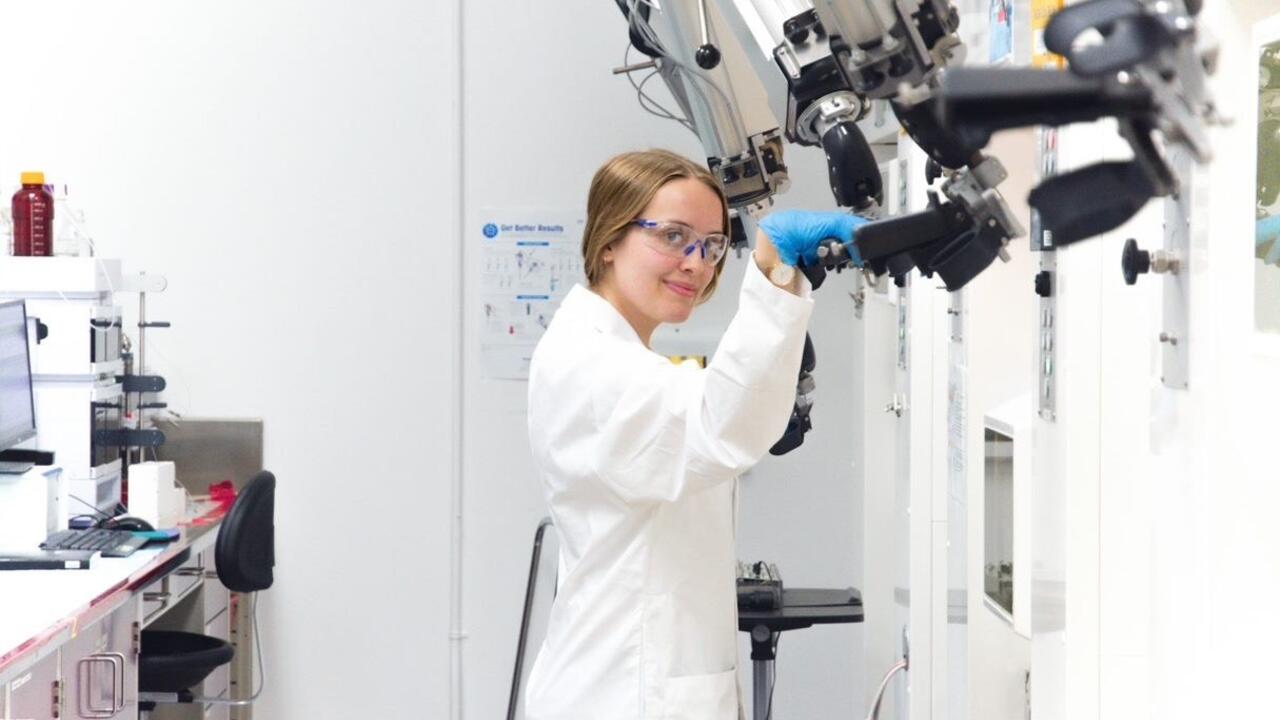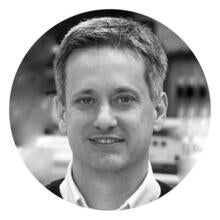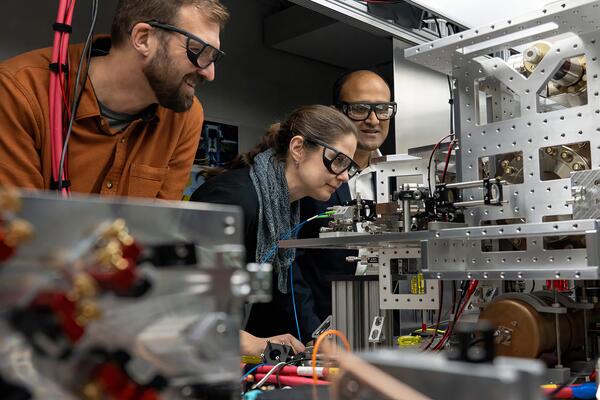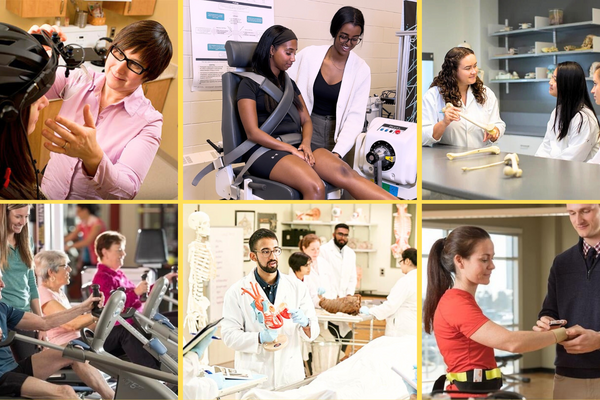
A Waterloo legacy
Carey Bissonnette was a beloved teacher at the University of Waterloo. A former student looks back on his compassion, and aims to continue his legacy.

Carey Bissonnette was a beloved teacher at the University of Waterloo. A former student looks back on his compassion, and aims to continue his legacy.
By Megan Vander Woude Office of AdvancementWhen Brooke McNeil entered her first year at Waterloo, she wasn’t sure what to expect from her professors during classes or office hours. That year, one professor stood out.
“I’ve never met a lecturer who was as thorough and concerned about his students understanding the material,” she explains. “Professor Bissonnette had no problem with spending an extra class on a concept if students didn’t understand it—even if it was just one person. He was so kind.”
 Carey Bissonnette was the first lecturer in Waterloo’s Faculty of Science. He had a deep knowledge of chemistry and a firm understanding of how to pass that knowledge on to young scientists. Outside the classroom, he worked as an enthusiastic advisor and cheerleader for individual students and student groups. He was a beloved figure in our campus community.
Carey Bissonnette was the first lecturer in Waterloo’s Faculty of Science. He had a deep knowledge of chemistry and a firm understanding of how to pass that knowledge on to young scientists. Outside the classroom, he worked as an enthusiastic advisor and cheerleader for individual students and student groups. He was a beloved figure in our campus community.
In 2019, Carey lost his battle with cancer, and Waterloo lost one of its most dedicated teachers. His wife Kim created the Carey Bissonnette Memorial Scholarship to honour his work and continue his legacy.
“I had heard from students that they cherished his ways,” she says. “I think that he remembered how it was to be a student and he kept that in mind when he was teaching. It was very important to him and his door was always open for advising and questions from his students and colleagues.”
The scholarship is awarded to a graduating undergraduate student who demonstrates a commitment in teaching or research.
“Carey always wanted to help hardworking students,” Kim says. “So this award is meant for students with strong academic achievements and who are involved in the University community through volunteering or jobs.”
BROOKE MCNEIL, Scholarship recipient
I feel a personal responsibility … to show the same passion that Professor Bissonnette had. I want to make him proud.
When Brooke learned that she was the first recipient of the Carey Bissonnette Memorial Scholarship, she was extremely honoured. Carey’s compassionate nature had stuck with her for the last four years and had inspired her to get involved. As an upper-year student, she became a teaching assistant and tried to emulate Carey’s thoughtful, patient style. She also employed that style as a student volunteer, sharing her experiences with prospective university students.
In September 2020, she began her doctorate degree at Simon Fraser University. She hopes to spend her career in academia, dedicating her life to research and teaching—just as Carey did.
“I feel a personal responsibility to do my best research and provide the best teaching for my future students—to show the same passion that Professor Bissonnette had,” she says. “I want to make him proud.”

Read more
Waterloo Pharmacy alum spearheads outpatient oncology clinic for patients undergoing cancer treatment at WRHN

Read more
And a new model for how quantum research is shared — opening doors for the next generation of scientists and entrepreneurs

Read more
From optometry and pharmacy to public health and therapeutics, Waterloo alumni are powering Canada’s health care sector
The University of Waterloo acknowledges that much of our work takes place on the traditional territory of the Neutral, Anishinaabeg, and Haudenosaunee peoples. Our main campus is situated on the Haldimand Tract, the land granted to the Six Nations that includes six miles on each side of the Grand River. Our active work toward reconciliation takes place across our campuses through research, learning, teaching, and community building, and is co-ordinated within the Office of Indigenous Relations.